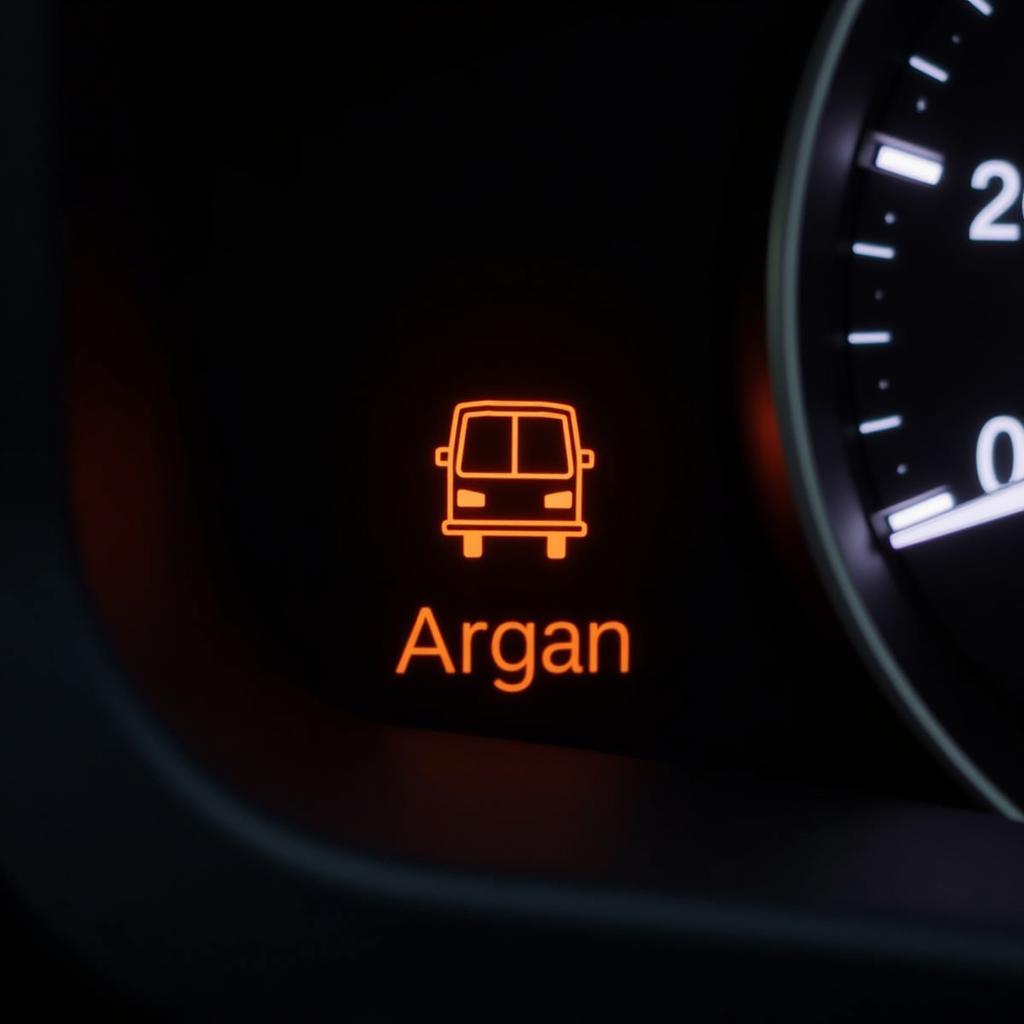The dreaded yellow brake light illuminating on your BMW dashboard can trigger a wave of anxiety for any driver. This warning light, often accompanied by a chime or message on your instrument cluster, signifies an issue with your braking system. While it’s easy to assume the worst, don’t panic. This article serves as your comprehensive guide to understanding the yellow brake light warning in your BMW, what might be causing it, and the steps you can take to resolve the issue.
Understanding Your BMW’s Braking System
Before delving into the potential causes of a yellow brake light warning, it’s essential to understand the basics of your BMW’s braking system. Your vehicle utilizes a sophisticated network of components working in harmony to ensure safe and efficient braking. Key elements include:
- Hydraulic System: This system uses brake fluid to transmit force from your foot on the brake pedal to the brakes at each wheel.
- Brake Pads and Rotors: The brake pads press against the rotors (discs) to create friction, slowing down the rotation of the wheels.
- Electronic Parking Brake: This system utilizes an electric motor to engage the rear brakes, securing the vehicle when parked.
- Anti-lock Braking System (ABS): ABS prevents wheel lock-up during hard braking, maintaining steering control.
- Dynamic Stability Control (DSC): DSC works in conjunction with ABS to enhance stability and traction by applying individual brakes and managing engine power.
Common Causes of the Yellow Brake Light Warning
Now, let’s uncover the common culprits behind the yellow brake light warning in your BMW:
1. Worn Brake Pads
Brake pads are designed to wear down over time as they generate friction to slow your vehicle. When the pads reach a certain thickness, your BMW’s brake pad wear sensors will trigger the yellow brake light.
How to Identify: Listen for a squealing or scraping noise when applying the brakes. You might also notice reduced braking performance.
2. Malfunctioning Brake Pad Wear Sensor
Sometimes, the brake pad wear sensor itself can be the problem. These sensors are susceptible to damage or corrosion, leading to a false warning light.
How to Identify: Inspect the brake pad wear sensors for any visible signs of damage or corrosion.
3. Low Brake Fluid Level
Brake fluid is the lifeblood of your BMW’s braking system. If the fluid level drops too low, it can indicate a leak in the system, triggering the yellow brake light.
How to Identify: Check the brake fluid level in the reservoir under the hood. A significantly low level suggests a leak.
4. ABS Sensor Issue
A malfunctioning ABS sensor can disrupt the system’s ability to monitor wheel speed accurately. This can lead to a yellow brake light warning, as well as potential issues with ABS and DSC functionality.
How to Identify: Your BMW might display an ABS or DSC warning light in conjunction with the yellow brake light.
5. Issues with the Electronic Parking Brake
Problems with the electronic parking brake system, such as a faulty switch or control module, can also trigger the yellow brake light warning.
How to Identify: You might experience difficulty engaging or disengaging the parking brake.
What to Do When Your BMW’s Yellow Brake Light Turns On
If the yellow brake light illuminates while driving, it’s crucial to remain calm and take the following steps:
- Assess the Situation: Are there any unusual noises or sensations when braking? Do the brakes feel different?
- Find a Safe Location: Carefully pull over to the side of the road or a safe parking area.
- Check the Owner’s Manual: Your BMW’s owner’s manual will provide specific information and recommendations for your model.
- Inspect the Brake Fluid: If comfortable, carefully check the brake fluid level in the reservoir. Do not open the reservoir if the engine is hot, as the brake fluid can be extremely hot and cause burns.
- Contact a Qualified Mechanic: If the brake fluid level is low or you suspect any other issues with the braking system, it’s essential to contact a qualified mechanic immediately.
Remote Diagnostics and Software Solutions
In today’s technologically advanced automotive landscape, remote diagnostics and software solutions play an increasingly important role in diagnosing and resolving vehicle issues, including those related to braking systems. Specialized services can connect to your BMW remotely, analyze vehicle data, and identify potential problems.
For example, a remote technician can:
- Read and interpret Diagnostic Trouble Codes (DTCs) stored in your BMW’s computer.
- Analyze sensor data to identify potential ABS or DSC issues.
- Check the status of the electronic parking brake system.
2006 nissan sentra brake warning light on
In some cases, software updates or recalibrations can be performed remotely, eliminating the need for a physical visit to the mechanic. However, it’s crucial to note that remote diagnostics and software solutions have limitations and may not be suitable for all brake-related problems.
Ignoring the Warning: The Risks
Ignoring a yellow brake light warning is incredibly risky and can lead to severe consequences, compromising your safety and that of others on the road. Delaying repairs can exacerbate existing issues, potentially leading to:
- Complete Brake Failure: Ignoring worn brake pads can eventually lead to metal-on-metal contact, significantly reducing braking efficiency and potentially resulting in complete brake failure.
- Expensive Repairs: Addressing a minor issue early, such as a brake fluid leak or a faulty sensor, is significantly less expensive than repairing the extensive damage caused by neglecting the problem.
- Accidents: Driving with a compromised braking system significantly increases the risk of accidents, putting yourself and others in danger.
nissan warning lights battery brake
Conclusion
The yellow brake light warning in your BMW serves as a vital safety alert, demanding immediate attention. While the cause might be a relatively minor issue, such as worn brake pads, it’s crucial to address the problem promptly to avoid potentially dangerous and costly consequences. Remember, your safety and the well-being of others on the road should always be your top priority.

